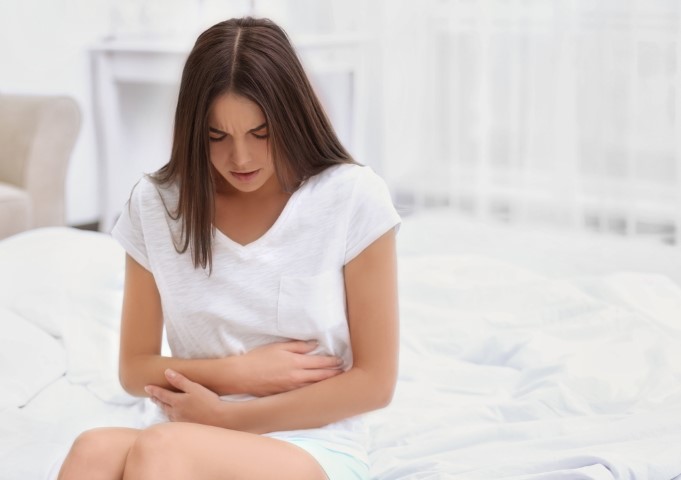For many women in the US (roughly 1 in every 10), endometriosis can be a source of considerable pain and frustration. Endometriosis is a gynecological condition caused by the tissue that lines the inside of the uterus growing and extending outside of the uterus. In addition to causing a number of unfortunate symptoms including chronic pain in the pelvis (especially during menstrual periods), pain during sex, and heavy or unnaturally long menstrual periods, endometriosis is strongly linked to female infertility and a higher risk of developing ovarian cancer. To help women ease their endometriosis-related pain, our board-certified gynecologists have provided a few tips on how to manage endometriosis symptoms.
Eat Healthy & Exercise
In addition to other more obvious health benefits, eating right and exercising regularly may provide some relief from the symptoms of endometriosis. Since endometriosis has been linked to certain bodily processes like inflammation and estrogen activity, eating foods that aid in these processes can help women prevent exacerbating their symptoms. We recommend that women with endometriosis eat more fresh fruits and vegetables as well as foods high in omega-3 fatty acids like salmon and walnuts. Working out (either high-intensity activity or low-intensity exercise like yoga or walking) can also ease endometriosis symptoms by aiding in the circulation of blood to your organs, maintaining the flow of nutrients and oxygen to all your body systems, decreasing estrogen production, reducing stress, and releasing endorphins in the brain.
Manage Your Stress
Endometriosis symptoms can also be triggered by high levels of stress. As these symptoms can often be one of the sources of your stress, we understand that this can seem like a never-ending cycle at times. But certain relaxation techniques and breathing exercises can help you to increase your awareness of your body, refocus on something calming, and reduce the activity of stress hormones.
Consider Medication Options
If diet and exercise don’t help, your board-certified gynecologist can recommend medication options for endometriosis depending on your age, the severity of your symptoms, whether you want to become pregnant in the future, and your unique medical history. These can range from over-the-counter pain relievers to hormone therapies including birth control pills, hormonal IUDs, and GnRH (gonadotropin-releasing hormone) agonists.
Keep in mind that these suggestions are meant to help manage your symptoms, not cure them. In order to properly treat endometriosis, surgery may be required. This can mean conservative surgery to remove the endometrial tissue while keeping the reproductive organs intact or a total hysterectomy for women with more extreme endometriosis, who are not interested in becoming pregnant in the future. For more information or to request an appointment today, please contact Dr. Kristine Gould at Gynecology Associates of Gwinnett. And follow along with us on social media for more helpful tips, news, and updates on women’s reproductive health & wellness.


